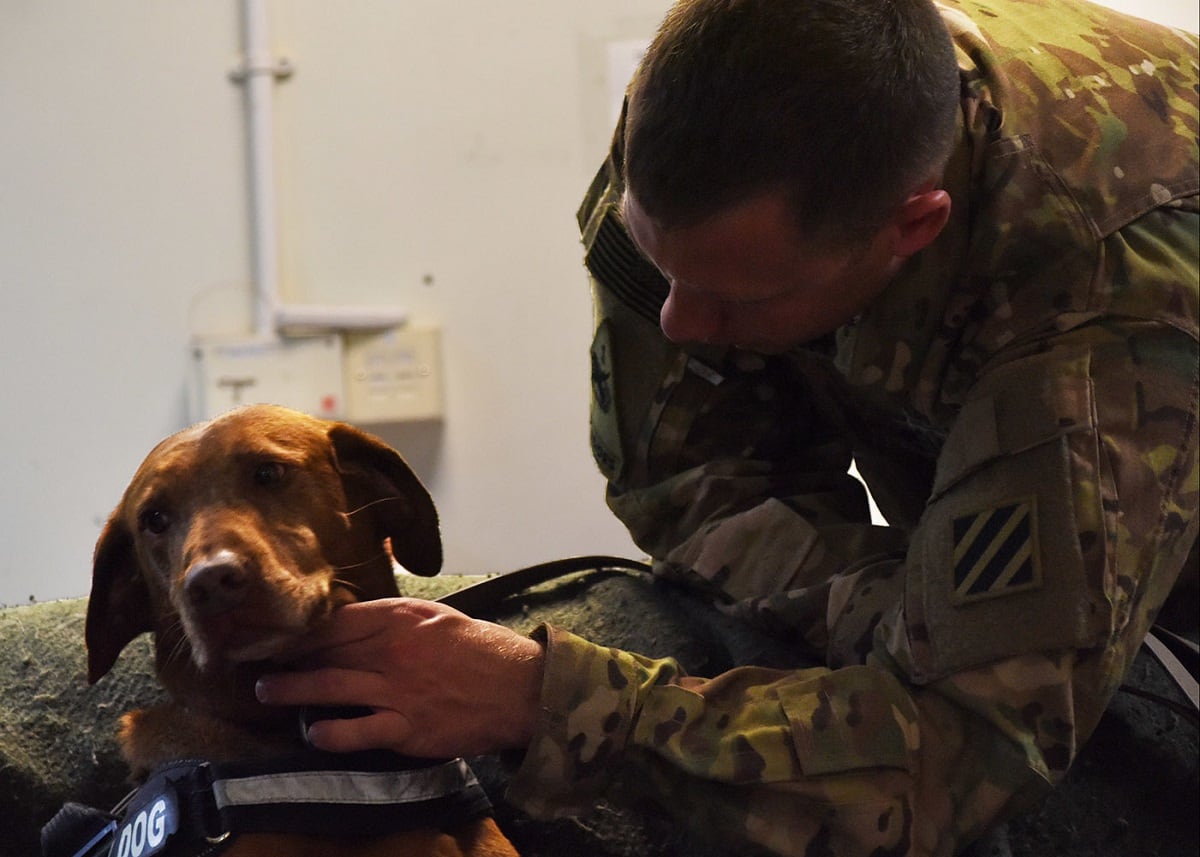EDITOR’S NOTE: This story has been updated to reflect additional information provided by the Department of Veterans Affairs.
WASHINGTON — Veterans Affairs Secretary Robert Wilkie is publicly backing the value of canine medical testing at his department, saying the practice could provide potential breakthroughs in treatments for spinal cord injuries and other challenges facing veterans.
“We have an opportunity to change the lives of men and women who have been terribly hurt,” Wilkie said in comments at the National Press Club last week. “And until somebody tells me that research does not help in that outcome, then I will continue it.”
Just eight months ago, then VA Secretary David Shulkin ordered a review of all medical experiments involving dogs with the goal of phasing them out. Shulkin was fired by President Donald Trump just a few weeks later.
RELATED

The issue of the dog experiments resurfaced this month after a USA Today report found VA facilities moving ahead with the medical research, potentially in violation of federal law.
Last year, as part of appropriations legislation, Congress mandated that the VA secretary personally approve all such experiments and publicly verify that “the scientific objectives of the study can only be met by research with canines.”
Shulkin has said publicly he did not approve any additional projects. VA officials dispute that, saying he re-authorized nine series of experiments on the day he was fired, with several senior officials present. Current department leaders and Shulkin have sparred over the status of several last-minute actions Shulkin took (or is said to have taken) in recent months.
Wilkie deflected questions on the legality of those moves but emphasized he supports the research moving ahead. Six current medical experiments with canines are active today, all held over from previous years of work. No new projects have been started.
“The research is conducted under strict supervision,” he said. “I would not do anything that would fail to help veterans.
“My charge is to make life easier for those who have borne the battle. There is nothing more tragic to me in 2018 at this stage in the development of medical science that we have not been able to find that cure to address spinal cord injuries and paralysis. I'm going to do everything ethical to make sure our veterans come first.”
Critics of the testing say those potential medical benefits are exaggerated, and the VA’s insistence on using the experiments runs contrary to prevailing wisdom in the health care community.
“It’s shameful to see that Sec. Wilkie, who was brought in to clean up VA, is doubling down on this wasteful policy,” said Justin Goodman, vice president of public policy for the White Coat Waste Project. “VA has had 18 months to produce some evidence that this is providing new breakthroughs, and they have failed to do so.”
Several veterans groups have changed their stance on the issue in recent years as well. Paralyzed Veterans of America, once a strong supporter of the practice, told USA Today that they no longer oppose plans to end the research.
Leo covers Congress, Veterans Affairs and the White House for Military Times. He has covered Washington, D.C. since 2004, focusing on military personnel and veterans policies. His work has earned numerous honors, including a 2009 Polk award, a 2010 National Headliner Award, the IAVA Leadership in Journalism award and the VFW News Media award.




